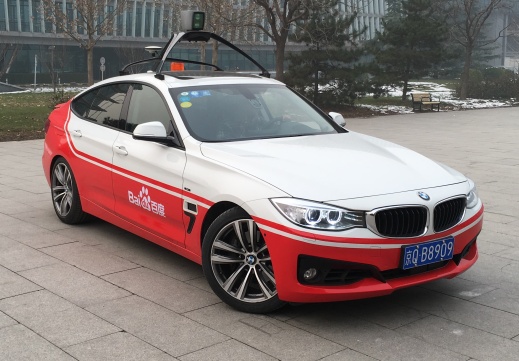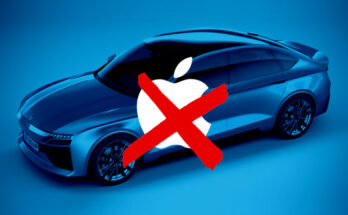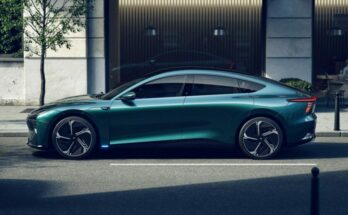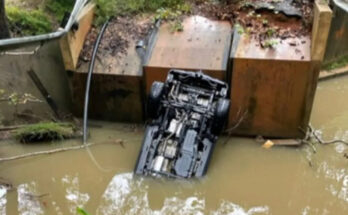Baidu, better known as the ‘Google of China’ is planning to mass produce driver-less electric cars in five years, bringing the fight to Google and Apple.
The company, which currently holds 80% of the internet-search market in China, will not manufacture the cars itself. Instead, it will outsource the actual production to an existing Chinese automaker, in the same way LeEco planning to outsource production of the LeSee. Baidu has approached several Chinese automakers but hasn’t made a final decision as yet.
Currently, Baidu is testing its driver-less technology with a fleet of BMW 3-Series GTs. These tests started in December 2015 with test cars being driven on public roads in Beijing and Wuhu. BMW however, will have no involvement in the eventual Baidu driver-less production cars.
In April Baidu announced the formation of a driver-less technology research center in Silicon Valley, and the company’s chief scientist said they want to start testing driver-less cars in the United States “soon”.

The system was announced in September 2015. It combines all the key ingredients needed for driver-less driving, plus Baidu’s MyCar car-connectivity software and Baidu’s CarLife synchronization software for mobile devices.
One of the most important elements of the system, or any autonomous driving system, is the map. And Baidu has one of the best, fully incorporated in their search software. BaiDu Maps is comparable to Google Maps, but at least in China it is more accurate and up to date, with fully photographed 3D surroundings of every street and lane in every Chinese city. And again like Google Maps, it is helped by the millions of users adding information and photos while using their mobile Baidu apps.
Another vital piece of the puzzle is the self-learning capability of the system’s software. Baidu has said that the most difficult parts to master are the car’s responses to situations that cannot be easily scripted, like a policeman gesturing or cyclists breaking the rules. Self-learning enables the vehicle to learn how to react to these unexpected situations.
Will Baidu be able to pull it off? In 2015 the company had a revenue of $10.6 billion and a profit of $5.3 billion, market cap hovers around the $55 billion. For comparison; Apple is worth $512 billion and Google $466 billion. That leaves Baidu with far less money on the table than its American competitors, and every investment in the car business automatically means less investment in the core search business.
Baidu hopes to get around this deficit by outsourcing actual production of the vehicles, so they won’t need to build factories and a supply chain. This however also means Baidu won’t have full control over the production, which is a weakness especially in a new field like driver-less cars. Furthermore, Baidu will still need to set up a distribution network and dealers for their cars, unless they plan to outsource that too.

A computer animation professional with over 23 years of industry experience having served in leading organizations, TV channels & production facilities in Pakistan. An avid car enthusiast and petrolhead with an affection to deliver quality content to help shape opinions. Formerly written for PakWheels as well as major publications including Dawn. Founder of CarSpiritPK.com





